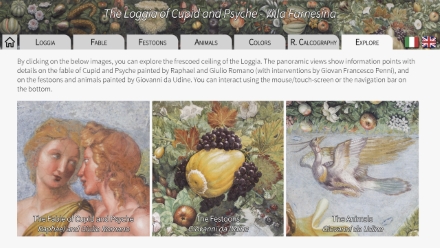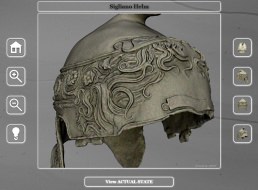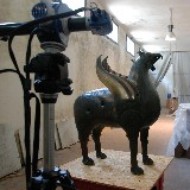Who are we? Where are we going?
The history of the Visual Computing Lab of CNR-ISTI began more than 25 years ago, with the friendship and collaboration of Claudio Montani (first head of the lab and former CNR-ISTI Director) and Roberto Scopigno (former head of the VClab, now CNR-ISTI Director). Paolo Cignoni, joined the laboratory at its beginning, and now heads the laboratory.
We have initially focused on scientific visualization, then moved to geometry processing, multiresolution representation / visualization, deformable models, 3D digitization, texturing and mesh parameterization.
Currently, our main application domain is Cultural Heritage (that is a rather natural choice since we live in Tuscany), including virtual museums, restoration, documentation and rapid reproduction.
Only a minority of the lab members have permanent positions, most of members' salaries are paid by several research projects (EC, Regional and National funds).
Research activity at VC Lab spreads several themes:
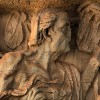
3D/2D Digitization
This is a consolidated topic of interest for the lab, with many results produced concerning both 3D digitization (scanning systems, algorithms for raw data processing, etc) and 2D methods (here our activity mostly focused on advanced 2D media, such as Reflection Transformation Images and panoramic images). more...
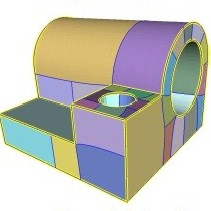
Geometry Processing
Our activity on Geometry Processing includes methodologies for shape analysis and characterization, mesh parametrization and its applications. First, we aim to apply such techniques for re-meshing, compression and visualization. This includes quadrilateral mesh generation (useful in the entertainment industry, architectural modeling more...
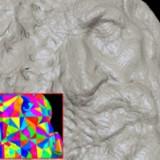
Interactive Graphics
This branch focuses on interactive algorithms and applications for Computer Graphics, mainly focusing on real-time rendering constraints, with the term rendering intended in a broad sense (photorealistic, massive data management, ad-hoc solutions for presentation purposes). Solutions are designed for both desktop and mobile devices; the design of multiresolution data management solutions is a basic resource for many projects in this strand more...
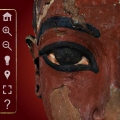
3D Graphics for Cultural Heritage
This thread is focused on the use of cutting-edge Computer Graphics for the support of Cultural Heritage. This includes not only the presentation of artifacts to the public, but also the development, experimentation and dissemination of new algorithms and tools to help the experts (art historians, restorers, archeologists) in their everyday work. more...
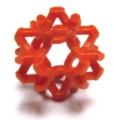
3D Fabrication
The main aim of industrial prototyping is to create a tangible representation of an arbitrary digital geometry. In this thread we mainly focus on solving the limitations of current 3D printing technologies. Moreover, we are also interested in leveraging the potential of computational fabrication techniques for the creation of advanced functional artifacts. more...
News
Paolo Cignoni: Outstanding Technical Contributions Award
Eurographics conferred to VC Lab Head Paolo Cignoni the 2021 Outstanding Technical Contributions Award for his extraordinary technical contribution to 3D graphics!
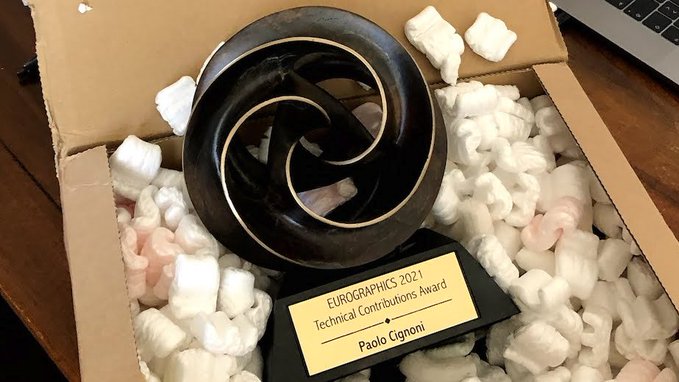
Best paper at GCH2020
The paper 'Another Brick in the Wall: Improving the Assisted Semantic Segmentation of Masonry Walls' by Gaia Pavoni, Francesca Giuliani, Anna De Falco, Massimiliano Corsini, Federico Ponchio, Marco Callieri, and Paolo Cignoni presented at the XVIII Eurographics Workshop on Graphics and Cultural Heritage (EG-GCH2020) has received the best paper award at the conference.

A ‘digital Loggia’ for Raphael and his workshop in Villa Farnesina, Rome
Oct 6th, 2020
An Interactive Digital System was developed by Gianpaolo Palma and Eliana Siotto of the Visual Computing Lab of ISTI-CNR to explore the frescoed ceiling of the Loggia of Cupid and Psyche at the time of the COVID-19. The system (http://vcg.isti.cnr.it/farnesina/loggia) was created in collaboration with the Accademia Nazionale dei Lincei within the celebrations for the fifth centenary of Raphael’s death, and it is mentioned among the “136 reopening projects in Italy and worldwide”.
The system has encountered a great media promotion in the leading specialized magazines, national and local media, social network and web (TG3 (17':35'), Rai Cultura, Arte Sky, Finestre sull’Arte, Arte Magazine, Corriere della Sera, Repubblica Roma, La Nazione di Pisa, Webinar – The Cyprus Institute, Webinar – Italian Cultural Institutes of the United States and Canada, etc.) with interesting effects on the cultural enjoyment.
The dedicated interactive system provides practical support at the exhibition 'Raphael in Villa Farnesina: Galatea and Psyche', opened today (October 6, 2020 – January 6, 2021).
